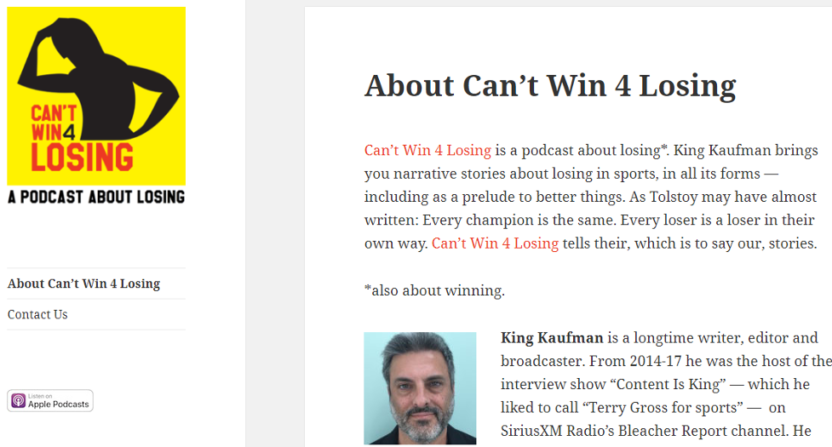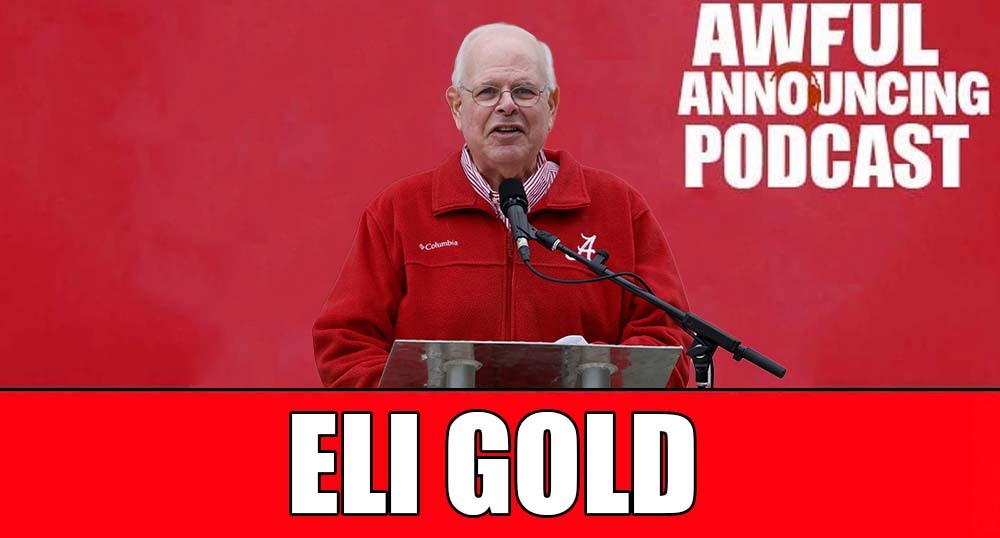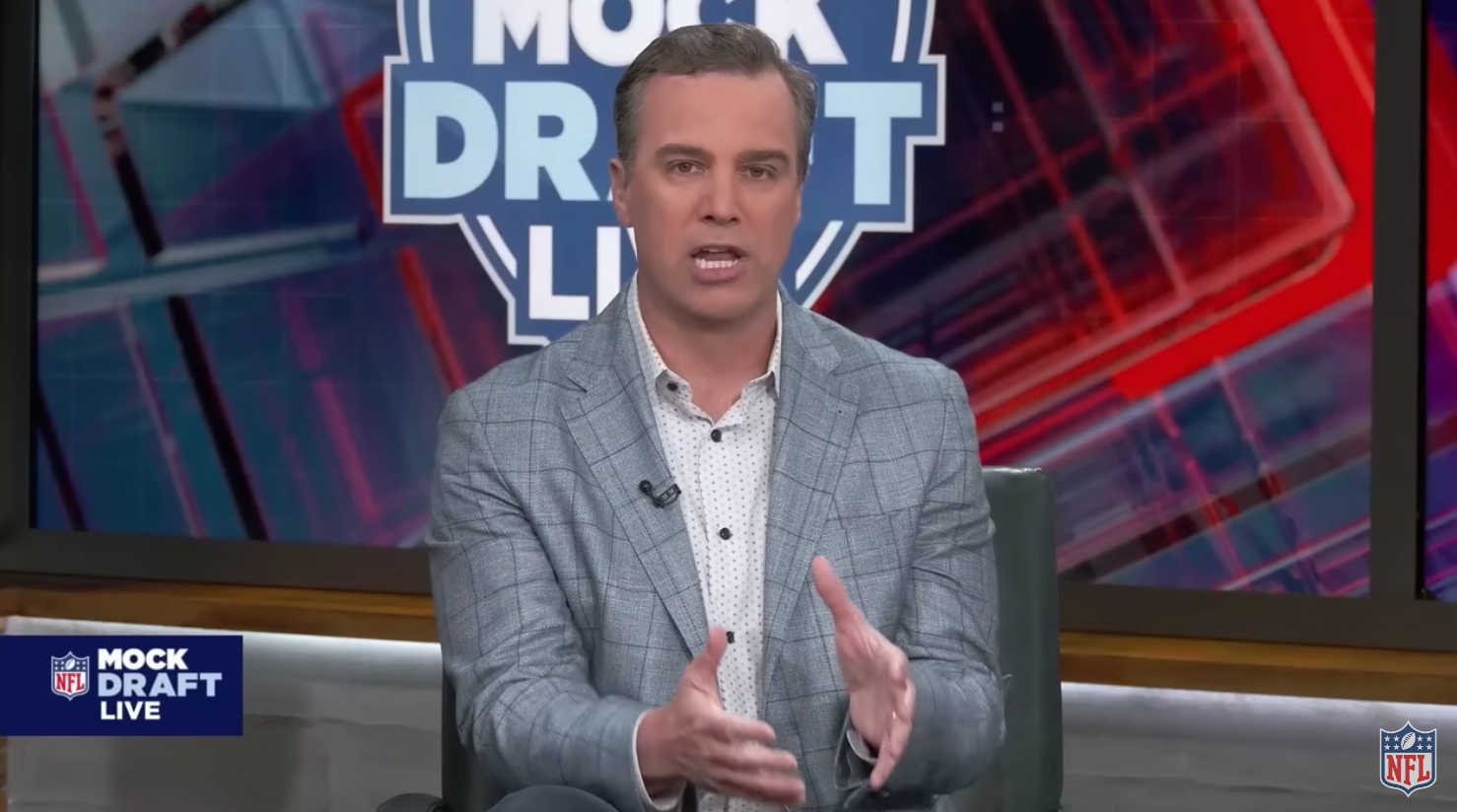Pivoting to…audio documentaries? That’s what King Kaufman did after he lost his job at Bleacher Report and Sirius XM this February in a round of layoffs at B/R, creating the new podcast “Can’t Win 4 Losing.” The podcast debuted Monday with the first episode, “Casey At The Bat,” and Kaufman has plenty more coming.
The first season will involve 12 full episodes, with one released each Monday, plus six or seven midweek bonus episodes with extra clips. (The first one there is already up as well.) Each involves interviews with multiple subjects about a famous sports loss or loser, snappily woven into a solid narrative framework that’s relatively new to sports, but is along the lines of many NPR shows. Kaufman spoke to Awful Announcing via e-mail this week about how this came together, and he said it was a shift he’d been planning for a while.
Kaufman has spent decades in journalism, but much of his previous work was on the written side. He worked for the San Francisco Examiner, CMP Media and Salon for decades, plus spent time as a book editor, then joined Bleacher Report as lead writer editor in 2011, editing their high-profile features and also working to improve the site’s reputation through mentoring, editing and instilling professional standards.
From September 2014 through February, though, Kaufman hosted his own radio show on SiriusXM’s Bleacher Report Radio, Content Is King. He said that reawakened his interest in audio journalism while also giving him the urge to do something more creative than just daily radio interviews, and media developments during that time suggested podcasting might be the way to go.
“Content Is King” started on SiriusXM on September 2nd, 2014,” Kaufman said. “On October 3rd, ‘Serial’ started. I had a full-time job plus this daily radio show, so I just had to watch as podcasting exploded. It felt like all the kids were going swimming and I had violin lessons. I loved doing ‘Content Is King,’ but it was very meat and potatoes, a straight interview show. I was always thinking I wish I could do something more creative. …So the whole time I was at SiriusXM, I was thinking, when this is over, I want to do a podcast.”
Kaufman did a master’s degree in journalism at the University of California, Berkeley in the 1980s, and said the audio journalism experience he received during that time laid the foundation for this podcast.
“I’d done a lot of radio in college,” he said. “Most of that was news broadcasts and sports play-by-play, but I also did some more creative, public radio-style narrative stories through the journalism school, where I was taught by William Drummond, who’s been at NPR since the ’70s. I always loved that stuff. I still have my reel from those days — and it’s actually a reel, as in reel-to-reel tape. I’d love to have a machine I could play it on but I still remember some of those stories.”
Part of what convinced Kaufman to start “Can’t Win 4 Losing” was what he sees as a “shortage in narrative storytelling in sports podcasting.” He said it’s not the easiest way to discuss sports, or the way that most gravitate to, but that leaves an opening for well-done audio documentaries to provide something different.
“I think there are lots of incentives against it,” Kaufman said. “Narrative storytelling — I’ve learned to say audio documentaries — is time-consuming and can be expensive to make. Interviewing people or analyzing and debating what’s going on is usually faster and cheaper. And with sports, you don’t necessarily need to tell narrative stories to create drama and interest. Every sporting event is already an unscripted drama, and every season or career is a kind of life story. The narratives are built in. And so is celebrity. So narrative storytelling happens less often sort of naturally, but I think there’s a lot of value in it, and when good documentaries get made, people seem to eat them up.”
Kaufman said another advantage to this approach is it works for sports fans, but can also expand the potential audience to those who aren’t huge sports fans but want interesting stories.
“The target audience for this podcast is people who like to listen to interesting stories and don’t hate sports,” he said. “That’s the minimum level. If you think sports are evil or something, try another podcast. Sports fans should like it. It’s not dumbed down so non-fans will get it. It’s about sports. It’s just not about X’s and O’s.”
But who makes a podcast about losers? Well, Kaufman said the idea of doing something focusing on the losing side has been in his brain for decades, going back to his personal experiences with losing.
“I have a couple different theories about the origins of the idea, but it’s an idea I’ve been kicking around for a long, long time,” he said. “One is that the first sports team I ever played on, Little League baseball, went 0-20, and I did not get a hit all year. I was 7, though officially I was 8. It’s possible I was the worst player on the worst youth baseball team in the world that year. I wrote about it in Salon about 15 years ago, in the guise of a book review. The book was about baseball teams that had endured heartbreak. So I guess I’ve felt for a long time that with losing, I get it. I learned it young.”
He then found out during his reporting career that the stories on the losing end can often be more notable.
“Then I had an epiphany of sorts in one of my first reporting experiences — as a college radio reporter. There was an important local election in Berkeley, a ballot measure that was going to change how the city was run, and my job was to go around town on election night to the various headquarters, interview people, and do a report on the phone every half hour.”
“As the night went on, I found that the people in the headquarters of the losing side were a lot more interesting. When I was talking about that afterward, someone, I forget who, said ‘Yeah, losers are always more interesting than winners.’ That’s always stuck with me.”
“So it’s been in the back of my mind for a long time. Something about losing. Maybe a book. When I started thinking about a podcast, it came to mind pretty quickly, and whenever I mentioned it to anyone, I got a great reaction. That got me thinking, yeah, we all can identify with losers, because nobody’s undefeated. We all lose a lot.”
One shift with these audio documentaries is they take a lot of lead time to produce, from lining up interviews to doing research to cutting everything together. That’s led to Kaufman working on a whole season at once over the past six months. Most of his episodes are ready, but there are still a couple he’s putting finishing touches on. And he covers a wide range of territory; sample episodes sent to Awful Announcing include the history of the famed poem Casey at the Bat, the Washington Capitals’ dreadful inaugural season, and one of the world’s most famous losing racehorses, Zippy Chippy.
How did Kaufman pick his topics? He said he brainstormed a ton of ideas, then started reporting them, pursuing some and dropping others where he couldn’t get the needed access. He also brought in others; friends helped him think of ideas, and he put out a call for freelance pitches as well, which led to four stories during this season that will be produced by freelancers. And even the format shifted a bit during production, with him making most episodes single stories rather than the multiple stories he initially envisioned.
“I was teaching myself how to do this as I went, so I didn’t end up like I started,” Kaufman said. “At the beginning I figured each episode would have three of four stories, so I had these themed episodes going, but I pretty quickly learned it wasn’t going to work like that. Episodes are one or sometimes two stories, so in the episodes where there are two, I tried to have the stories somewhat go together, but there was a lot less coordinating and plotting out than I thought.”
“Can’t Win 4 Losing” is also much more than just interviews pasted back-to-back. It’s comprehensively edited, frequently going back and forth between subjects along thematic lines, and also features plenty of music cues, sound effects and historical audio clips that really help immerse the listener. You can see some of that in this sample clip from the first episode:
Kaufman said he went the extra mile with music, sound and historical clips to try and make his show stand out in the crowded sports podcasting arena.
The latest
“When I started working on the podcast, ESPN hadn’t announced they were doing audio 30-for-30’s yet, and those things are pretty freakin’ well produced. But I still think a crafted, highly produced sound, along with compelling stories, is a way for me to stand out from the crowd.”
But how does a one-man podcast pull in those kinds of clips? Kaufman said it’s thanks to databases of free effects and music, as well paying for a few selected clips and songs.
“The sound itself comes from various sources aside from my own recording. Everything is either in the public domain, or used through a Creative Commons license or what I would argue is fair use. Freemusicarchive.org and Freesound.org are amazing resources. Plus I’ve purchased a few sound effects, and the rights to my closing theme song, which is the great “Can’t Win For Losing” by the great Johnny Rawls.”
How did Kaufman go from a writer and radio host to a creator and host of audio documentaries? According to him, one key was asking the right questions, and another was finding the right help.
“I got some gear, asked a bunch of smart people with radio and podcasting experience a lot of questions and taught myself how to put together a show that I’d want to listen to. The entire production is by me, plus one of those smart people, Geoffrey Redick. He was a producer on ‘The Bob Edwards Show’ on pre-merger XM Radio. He hired me to come on the show on Fridays and talk sports with Bob, like Red Barber used to do. He has been a teacher and advisor for me, and he puts the last level of audio polish on everything I do.”
CLICK HERE TO CONTINUE READING >>>







